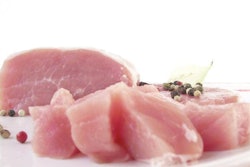
Short-lived export ban comes to an end after government secures supplementary food reserves
One week after implementing a ban on the export of grain, oilseeds and other food products, the government of Romania has overturned its decision despite ongoing concerns about the spread of the novel coronavirus (COVID-19).
The U.S. Department of Agriculture’s (USDA) Bucharest post reports that Romania overturned the ban, which went into effect on April 9 and was expected to remain in place through at least May 16. It was canceled a month early, after the Romanian government negotiated with local traders to procure supplementary reserves in case of shortages. According to the USDA, Romania initially issued the ban in response to the COVID-19 pandemic, alongside concerns about growing drought conditions in the country’s southeastern regions, which could affect corn, soybean and sunflower production.
The ban originally applied to corn, soybeans and soybean meal, as well as other grains, flours, seeds and bakery products. The government order stipulated that exports within the European Union could continue, so long as exporters obtained a certificate that the goods in question would not be sold or consumed outside the EU.
The USDA reports that the ban had already impacted the ability of exports bound for non-EU markets to obtain phytosanitary certificates by the Romanian Phytosanitary Authority. According to the USDA, organizations representing Romanian farmers and industry spoke out in opposition to the ban, saying stakeholders were not consulted prior to its implementation and arguing that it would disrupt supply chains and contribute to, rather than prevent, market instability.
Romania was just one of more than a half dozen nations and trade authorities that have restricted the exports of grain, oilseeds and other staple crops in response to concern about potential shortages driven by the COVID-19 pandemic in recent weeks. The restrictions primarily impact markets in Eastern Europe and Asia. Other countries have loosened tariffs on imports in efforts to shore up food supplies.
View our continuing coverage of the novel coronavirus (COVID-19) pandemic.











